Mandarins are one of the most famous representatives of Citrus, known since antiquity. Mandarin citrus fruits have extremely valuable nutritional benefits. The Mandarin tree is of the Rutaceae family and a small evergreen subtropical fruit tree. There are dark green shiny leaves and their homeland is Southeast Asia, and in particular, the lands of present-day China and Vietnam. The name mandarin comes from the homonymous senior Chinese dignitaries, who treated this fruit with great respect.
Indeed, their status and wealth allowed them to have Mandarins - the common people at the time found it difficult to get the orange citrus. Gradually, the trees spread throughout China, Japan and India, and in Europe the plant with delicious and juicy fruit arrived in the late 18th, early 19th century. Originally, they were grown only in greenhouses, but plantations in Italy and Southern France quickly appeared. The largest producers of tangerines today are Spain, Algeria, Morocco, USA, and the fruits are grown in the former Soviet Union, USA, Mediterranean and more.
Most famous are the unshiu and Italian mandarins. Like oranges, these offer hybrids. Among them are tangelo - a mixture of mandarin and grapefruit, considerably larger and oval, with a slightly bitter taste. The tangerine is a hybrid of a mandarin and an orange. Named after the Moroccan city of Tangier, it is considered the finest variety. There's the Satsuma mandarin, which is sweet and seedless, calamandrin - a cross between a mandarin and cumquat, finds wide use in canning. Probably the most popular type of mandarin is the Clementine. For this hybrid, we should be grateful to the French priest and coach Clement, who in 1902 crossed mandarin and look like oranges. Clementines are sweet and seedless. The fruits of mandarins are 5-8 cm in diameter, are small and weigh between 60 to 140 g.
Composition of mandarins
100 g of mandarins has no cholesterol. Ordinary mandarins have 35 calories, 81 4 g water, 17 g of sugar (mainly fructose), 42 mg vitamin C, 18 mg vitamin A, 32 mg calcium, 210 mg potassium. There are small amounts of B1, B2, PP and carotene. Like all citrus fruits, mandarins are a bomb of vitamin C, but there is also vitamin A, vitamin D and vitamin K, and bromine.
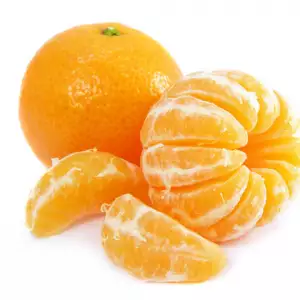
For comparison, Clementines have 47 calories, 0.85 g protein, 12.2 g carbohydrate and 0.15 g fat. Calories from their fat are about 1 g, the amount of sodium is 1 mg, potassium is at 177 mg, fiber 1.7 g, Sugars 18.9 g, vitamin C- 49 mg, calcium 30 mg, niacin 1 mg, phosphorus 21 mg, magnesium 10 mg and 87 ml water.
According to research mandarins are fruit that contain nitrates and citric acid, so they act as the destroyer of harmful compounds. Citric acid acts as a cleansing ingredient that enters into biochemical reactions with nitrate and kills toxins. Therefore, mandarins are a powerful food, best to cleanse the body with. Mandarin peels have terpene, a substance that has anti-cancer effects and prevents platelet aggregation.
Selection and storage of mandarins
Buy mandarin whose skin is shiny, with even orange. Avoid mandarins with shriveled sections, injury or discoloration. Ripe ones are known by that they are soft to the touch, but heavy for their size - this means that it was not standing too long after its separation from the tree.
Left at room temperature, mandarins can be stored for up to 2-3 days. Placed in a fridge, they last a little longer.
Culinary use of mandarins
Mandarins are the most delicious and healthy when eaten fresh. However, they are great in the form of juices, jams and other sweets. In some places, they even make jams from the peel of mandarins. Mandarins are found in the composition of many fruit salads, as well as combine with banana, apple, kiwi, nuts and raisins. Mandarins make for some spectacular decorations on cakes and cupcakes.
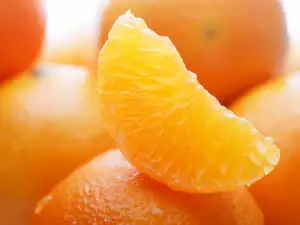
Benefits of mandarins
Regular meals of citrus, especially mandarin. protects against the development of dementia and cognitive impairment. They are an excellent way to protect cardiovascular disease, obesity and type 2 diabetes, according to a recent research. Vitamin A is contained in Mandarin and it is required for the immune system and good for the eyes, and bromine is important for the nervous system.
The substance terpene in their peel has an anti-tumor effect and helps avoid clots in blood vessels, contraction of the bronchi and their hypersensitivity. Thus, they have a preventive effect against asthma and spasm of blood vessels. The vitamin D in mandarins prevents rickets and their vitamin K is essential for blood vessel elasticity.
Mandarins are rich in flavonoids and in particular, plant pigments known as nobiletins. It is 10 times more potent than that contained in grapefruit. Helps against obesity and atherosclerosis - plaque deposition on the walls of the arteries, which can lead to heart attack or stroke. South Korean scientists have discovered recently that mandarins help weight loss.
Results of the study showed that consuming large amounts of this fruit reduces the accumulation of fatty tissue in the abdomen and liver. The experiment was conducted with mice. One group was given mandarin juice for about three months and they had lost a significant percentage of their body weight.
Mandarins are also used in the cosmetic industry. From their skin, essential oil is obtained, which is used in food and perfumery and excellent aroma therapy. It can make inhalations, fragrant aromatic baths and massages. It is believed that mandarin oil can soothe and disinfect. It helps to intensify mental alertness and increase concentration.
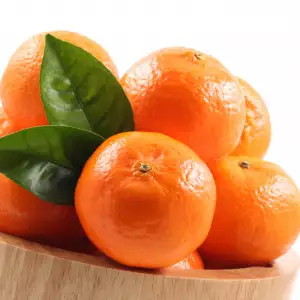
The tangerine’s flavor tones and refreshes. They are often used in treatments for cellulite and stretch marks, especially for new mothers. It has antiseptic, influenza action and is celebrated as an aphrodisiac and improves circulation and stimulates the immune system. Essential oils in mandarins improve appetite and digestion, and are applied as a fungicide and purifies the body of toxins. Mandarin oil is a staunch ally in the fight against excess weight.
The volatile oil of mandarins lifts the mood and their juice has antimicrobial properties. Mandarin juice is used in skin diseases. The effect of clean air in the fresh juice kills fungus and tinea microsporia. If you have a fungal nail and skin issue, regularly anoint them with freshly squeezed fruit juice or peels. Against coughs and bronchitis, use a decoction or infusion of dried skin. In diabetes, decoction of the skin of mandarins is excellent. It reduces blood sugar. Make it from the skin of three mandarins, which are boiled for 10 minutes in 1 liter of water. Do not filter the decoction, consume the same day and store it in the fridge. Mandarin juice helps against intestinal worms and diarrhea.
Dangers of mandarins
Besides being extremely useful, mandarins can harm a person's health in certain situations. If you have an ulcer, enteritis gastritis with high acidity of gastric juice, acute colitis and inflammatory bowel disease, and cystitis, hepatitis and acute nephritis, mandarins are not advisable. They can irritate the lining of the intestines, stomach, and kidneys. Mandarins are contraindicated for cholecystitis, hepatitis and acute nephritis.
Tangerine essential oil is contraindicated for epileptics, hypertensives, nursing mothers, pregnant women and children, and people with individual intolerance to it. Prolonged use may lead to expressed euphoria, or allergy. The juice of mandarins and other citrus fruits may cause erosive tooth damage in children, according to some studies. Fruit juices contain some sugar and fruit extracts, rich in fruit acids that can irritate the mouth and teeth. Aggressive use of the juice of tangerines can damage tooth enamel.
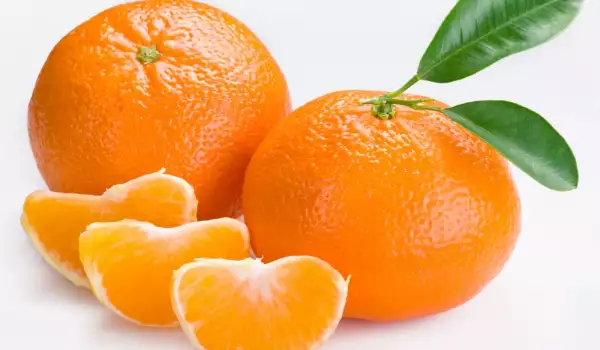

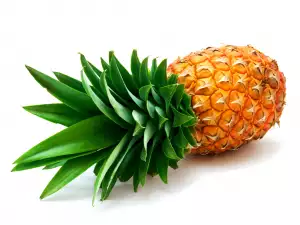
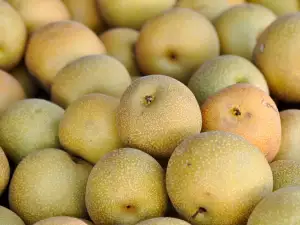
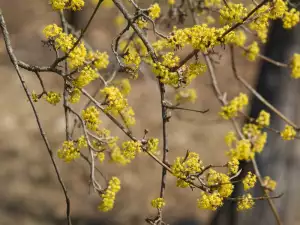
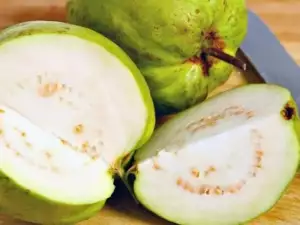

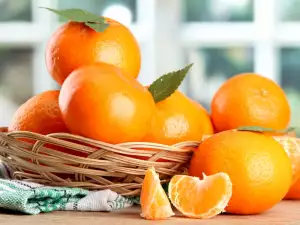


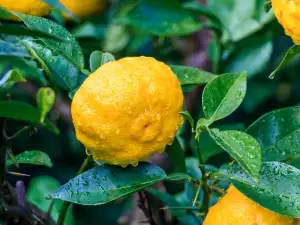

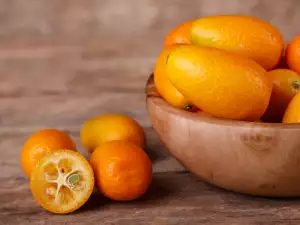

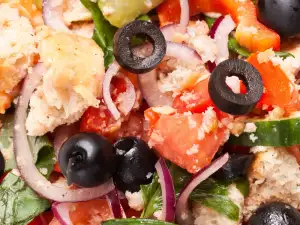




Comments